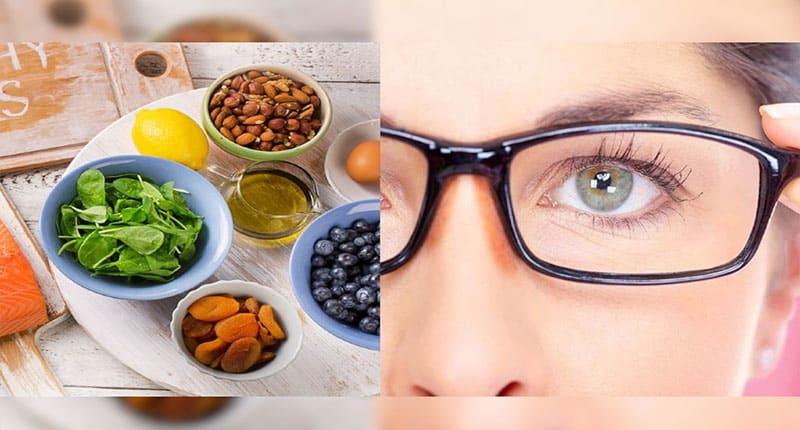Our eyes are vital organs that allow us to perceive the world around us. Taking care of our eye health is essential for maintaining clear vision and preventing vision-related problems. One nutrient that plays a crucial role in supporting eye health is vitamin A. In this article, we will explore the benefits of vitamin A for eye health and discuss various sources and ways to incorporate it into your diet.
Understanding Vitamin A
Vitamin A is a fat-soluble vitamin that exists in two primary forms: retinol and beta-carotene. Retinol, which is found in animal-derived foods, is a preformed version of vitamin A that can be directly utilized by the body. On the other hand, beta-carotene is a provitamin found in plant-based foods and must be converted into retinol by the body.
The Importance of Vitamin A for Eye Health
Vitamin A plays a crucial role in maintaining optimal eye health. It is essential for the proper functioning of the retina, a light-sensitive tissue located at the back of the eye. The retina converts light into electrical signals that are sent to the brain, allowing us to see.
Moreover, vitamin A promotes the production of rhodopsin, a pigment found in the retina that is vital for night vision. It also helps protect the cornea, the transparent outer layer of the eye, from damage and supports overall eye function.
Symptoms of Vitamin A Deficiency
Insufficient intake of vitamin A can lead to a deficiency, which may manifest through various symptoms. These can include night blindness, dry eyes, difficulty seeing in low light conditions, and an increased susceptibility to eye infections. In severe cases, vitamin A deficiency can even lead to vision loss.
Dietary Sources of Vitamin A
To enhance your eye health, it’s crucial to include vitamin A-rich foods in your diet. Excellent sources of retinol include liver, fish oil, dairy products, and eggs. For those following a plant-based diet, beta-carotene-rich foods such as carrots, sweet potatoes, spinach, kale, and apricots are great choices. Consuming a variety of colorful fruits and vegetables can provide a range of carotenoids that can be converted into vitamin A by the body.
Supplementation Options
In some cases, obtaining sufficient vitamin A from diet alone may be challenging. In such situations, supplementation can be considered under the guidance of a healthcare professional. Vitamin A supplements are available in various forms, including capsules, tablets, and liquid. It’s important to follow the recommended dosage to avoid the risks associated with excessive vitamin A intake.
Precautions and Dosage Recommendations
While vitamin A is crucial for eye health, it’s important to note that excessive intake can be harmful. High doses of vitamin A over a prolonged period can lead to a condition called hypervitaminosis A, which can have adverse effects on various organs, including the liver and bones. It’s essential to follow the recommended daily allowances and consult a healthcare professional before starting any supplementation regimen.
Recipes to Boost Your Vitamin A Intake
Incorporating vitamin A-rich recipes into your diet can be both delicious and beneficial for your eye health. Try preparing a vibrant carrot and ginger soup or a colorful spinach and apricot salad. You can also experiment with roasted sweet potatoes or incorporate kale into your smoothies. By getting creative in the kitchen, you can ensure an adequate intake of vitamin A while enjoying flavorful meals.
Lifestyle Habits for Maintaining Healthy Eyes
In addition to consuming sufficient vitamin A, adopting certain lifestyle habits can contribute to maintaining healthy eyes. Ensure you take regular breaks when working on digital screens, practice good hygiene to avoid eye infections, and maintain a balanced diet rich in other eye-healthy nutrients like omega-3 fatty acids, vitamin C, and antioxidants.
Tips for Protecting Your Eyes from Harmful UV Rays
Protecting your eyes from harmful ultraviolet (UV) rays is essential to prevent long-term damage. Whenever you spend time outdoors, wear sunglasses that offer 100% UV protection. Additionally, consider wearing a wide-brimmed hat to provide further shade and reduce UV exposure.
Vitamin A and Age-Related Macular Degeneration (AMD)
Age-related macular degeneration (AMD) is a common eye condition that can lead to vision loss. While vitamin A cannot cure AMD, it is believed to play a protective role. Consuming a diet rich in antioxidants, including vitamin A, may help reduce the risk or slow down the progression of AMD. However, it’s important to consult with an eye care professional for a comprehensive treatment plan if you have been diagnosed with AMD.
Vitamin A and Dry Eyes
Dry eyes can cause discomfort and affect vision quality. Vitamin A supports the production of tears, which are essential for maintaining eye moisture. While more research is needed to establish a direct link, ensuring an adequate intake of vitamin A may help alleviate symptoms of dry eyes.
Conclusion
Taking care of your eye health is crucial for maintaining clear vision and preventing eye-related problems. Incorporating vitamin A into your diet can support optimal eye function and protect against deficiencies. Remember to include a variety of vitamin A-rich foods in your meals and consult with a healthcare professional if considering supplementation. By adopting healthy lifestyle habits and protecting your eyes from harmful UV rays, you can enhance your overall eye health and enjoy the beauty of the world around you.
Frequently Asked Questions (FAQs)
1. Can vitamin A reverse existing eye problems?
- Vitamin A can improve certain eye conditions, but it cannot reverse existing eye problems. It is more effective in preventing deficiencies and supporting overall eye health.
2. What are the risks of consuming too much vitamin A?
- Excessive intake of vitamin A can lead to hypervitaminosis A, which can cause toxicity symptoms and harm various organs, including the liver and bones.
3. Are there any natural alternatives to vitamin A supplementation?
- Yes, there are natural alternatives to vitamin A supplementation. Consuming a balanced diet rich in vitamin A-rich foods can provide sufficient levels of this essential nutrient.
4. Can vitamin A benefit night vision?
- Yes, vitamin A plays a vital role in promoting night vision by supporting the production of rhodopsin, a pigment essential for low-light conditions.
5. Is it necessary to take vitamin A supplements if I have a balanced diet?
- If you have a balanced diet that includes sufficient vitamin A-rich foods, supplementation may not be necessary. However, it’s best to consult with a healthcare professional to determine your specific needs.










